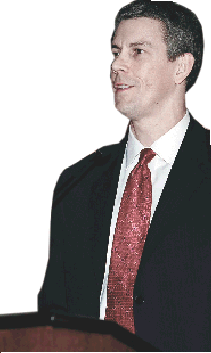 |
Chicago Public Schools students have made slow but steady progress in several key areas during the eight-year leadership of CEO Arne Duncan – President Obama’s new education secretary.
• Graduation rates climbed from just over 47 percent in 2001 to a little more than 55 percent in 2007.
• Dropout rates have steadily declined, from just over 50 percent in 2001 to 40.6 percent in 2007.
• The availability of after-school sessions grew from 30 schools in 2001 to 150 today (out of the system’s 650 schools) through the city’s Community School Initiative, the largest in the nation. Opening schools to communities and extending the school day have been hallmarks of Duncan’s administration.
• The number of students taking Advanced Placement (AP) courses more than doubled over the past four years, to 18,065 today.
The question is: Can this Chicago native son, a Harvard-educated former professional basketball player, translate his successes in Chicago to the national scene? Supporters are optimistic; others aren’t so certain.
Views from the Field
“I’m sure he’ll build from his experience running one of the largest and most complicated school districts in the country,” said Jim Nelson, executive director of AVID (Advancement Via Individual Determination), a college-readiness program that has been widely implemented in Chicago public schools under Duncan. “I’m excited.”
Martin Blank, staff director for the Washington, D.C.-based Coalition for Community Schools, said this is the first time in his 35 years of work in the field that the Education Department will be headed by such a strong advocate for community schools.
On the other hand, Daniel Bassill, CEO of the Cabrini Connections tutor/mentoring program in Chicago and of a website to expand mentoring, questions Duncan’s education-centric approach. A community school is a “pretty fuzzy idea in terms of what that really means,” Bassill said.
He said Duncan’s after-school strategy in Chicago did not involve enough businesses and adults not directly associated with the school system. After-school needs multiple “leader roles,” Bassill said, “not just people on the education payroll.”
Duncan, 44, grew up helping at his mother’s tutoring center in Chicago’s South Side, the Sue Duncan Children’s Center. His entire professional educational career has been spent in Chicago. After graduating from Harvard in 1987, he spent the next four years playing professional basketball, mostly in Australia, where he was also a social worker with underprivileged children.
In 1992, he was named head of the Ariel Education Institute, an educational venture to increase opportunities for South Side Chicago children; it was founded by his childhood, friend John W. Rogers Jr. Duncan joined Chicago Public Schools in 1998 and served as chief of staff to the CEO, before being named CEO himself in 2001.
Duncan and Obama became friends on the basketball court in Chicago.
Tracy Dell’Angela, senior manager of outreach and publications at the Consortium on Chicago School Research at the University of Chicago, said Duncan’s overall emphasis has been on college success.
“Chicago has been unusual, if not unique, on creating focus on college outcomes,” Dell’Angela said. “In the last few years [Duncan has] invested a lot of effort, time and money in post-secondary initiatives, making sure college counselors are better trained, making sure kids understand the tough courses they’ll be facing. Chicago has been sort of a leader in this front.”
While critics say Chicago public school students have a poor record of passing AP courses, Dell’Angela said exposure to the college-readiness courses has been beneficial in and of itself.
Also, Chicago’s fourth- and eighth-grade students are still below the national averages for all schools, as well as the national averages for large urban school districts on reading and math scores, as measured by the Nation’s Report Card, which is produced for the Education Department by the National Center for Education Statistics.
“It leads you to believe that Chicago is struggling like a lot of urban districts on national standards,” Dell’Angela said.
She said Duncan’s leadership style should work well as he moves to the national level. “What’s most notable about Arne is his willingness to listen to different perspectives,” she said. “He doesn’t get locked into what he wants to do. He’s willing to shift course if [something] is not working.”






























